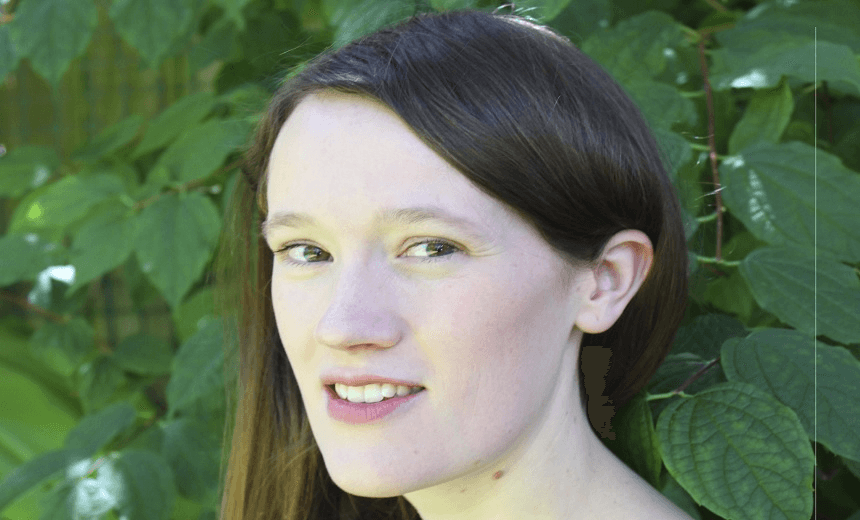Wellington writer Anna Smaill’s 2015: Edinburgh, Hong Kong, good luck, tea and Hobnobs, ‘a steadying ale’, Amazon ratings, ‘the psychological hangover of writing my first novel’, book number two.
2015 has been a lucky year. I published my first novel, and had the good fortune to travel to London to meet the people who were instrumental in making that happen. Their grace and kindness and generosity are my resounding memory of the last twelve months. I also travelled to Edinburgh and Hong Kong and through much of New Zealand to attend literary festivals. Each time I landed on a runway in a city other than the one in which I live, I felt lucky. I get to go here because I wrote a novel, I thought incredulously. It still seems a strange and wonderful fact. In 2015 I met a lot of new people – booksellers; professional book enthusiasts; kind and collaborative readers; experienced novelists; erstwhile strangers whose debut novels came out in the same period and with whom I bonded via twitter. The novelist Nick Harkaway invited me over for tea and Hobnobs after a shared panel. Antonia Honeywell (whose name conjures a Merchant-Ivory filmset, and whose fine dystopian novel The Ship was released on the same day as The Chimes) took me to the Jeremy Bentham pub for a steadying ale.
Because it is one of the stranger things about publishing a novel that at the moment you feel the most vulnerable, the most exposed, you are in fact the farthest from the meaningful work of its writing. On immediate completion you’re still shielded by a memory of the heady writing state: you’re still in love. Massive as they are, the anxieties you have been dealing with (the fear of the failure of an idea; the fear of the failure of execution or imagination) all had a feasible solution: more work. When your book is physically available in bookshops, however, and is being talked about online or in newspapers or magazines, you are at the very tail end of a long process of disenchantment. Almost two years after finishing, it’s hard to remember who you were when you wrote it. It’s also true that, in spite of what your publicist might tell you, there’s nothing much you can do to change things.
For me, a great deal of 2015 was coming to terms with this fact. The quick study realises that there is no point thinking much about the published book and its life out in the world. Reviews come and go, Amazon ratings may or may not bespeak that ephemeral thing – sales. Judges in prize committees may or may not like your book and want to put it on long and short lists. Friends and family will ask you ‘So, how is the book going?’ and you will not know quite how to answer them. The quick study realises that while there is nothing physical, nothing external, that you can do about having a book coming out, there is something internal that you can do. The internal thing you can do involves maturity and wisdom.
I am not a particularly quick study. In fact in this, as in most things, I was a slow learner. I do, however (luckily) have a very patient and infinitely wise husband, and the self-preserving desire to keep writing. For me, then, the most important work of 2015 was shedding the psychological hangover of writing my first novel, and my cares about how it might fare in the world, in order to get properly underway on the work of figuring out how to write another one. I’m not entirely there yet, but it’s a good thing to be going in to 2016 with a second book underway, and the teasing feeling of a new world coalescing. It’s a relief to feel the attendant anxieties of writing again. Unlike the transparent, internetty anxieties of publication, this breed have colour and texture, they cluster and rumble. And there is something you can do about them: push your way deeper in.

